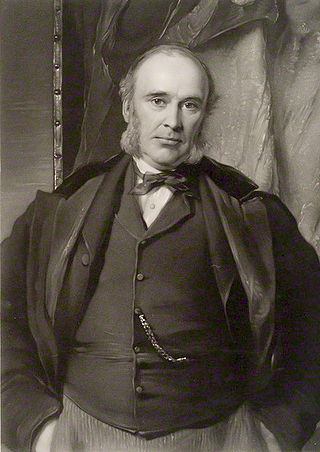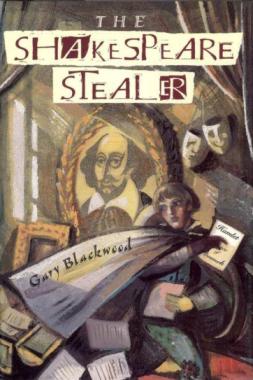
Year 1067 (MLXVII) was a common year starting on Monday of the Julian calendar.

William Godwin was an English journalist, political philosopher and novelist. He is considered one of the first exponents of utilitarianism and the first modern proponent of anarchism. Godwin is most famous for two books that he published within the space of a year: An Enquiry Concerning Political Justice, an attack on political institutions, and Things as They Are; or, The Adventures of Caleb Williams, an early mystery novel which attacks aristocratic privilege. Based on the success of both, Godwin featured prominently in the radical circles of London in the 1790s. He wrote prolifically in the genres of novels, history and demography throughout his life.

Arthur I was 4th Earl of Richmond and Duke of Brittany between 1196 and 1203. He was the posthumous son of Geoffrey II, Duke of Brittany, and Constance, Duchess of Brittany. His father, Geoffrey, was the son of Henry II, King of England.
This article contains information about the literary events and publications of 1818.
This article contains information about the literary events and publications of 1816.

Tom Thumb is a character of English folklore. The History of Tom Thumb was published in 1621 and was the first fairy tale printed in English. Tom is no bigger than his father's thumb, and his adventures include being swallowed by a cow, tangling with giants, and becoming a favourite of King Arthur. The earliest allusions to Tom occur in various 16th-century works such as Reginald Scot's Discovery of Witchcraft (1584), where Tom is cited as one of the supernatural folk employed by servant maids to frighten children. Tattershall in Lincolnshire, England, reputedly has the home and grave of Tom Thumb.
William John Hamilton was a British geologist who served as a Conservative Member of Parliament.

Viscount Hambleden, of Hambleden in the County of Buckingham, is a title in the Peerage of the United Kingdom. It was created in 1891 for Emily Danvers Smith, in honour of her deceased husband, the businessman and Conservative politician William Henry Smith. Both their son, the second Viscount, and grandson, the third Viscount, were involved in the management of the family business, the stationer and retailer W H Smith.
Harriet Lee was an English writer and novelist, born in London in 1757, and died near Briston at Clifton, England, on August 1, 1851. Her father, John Lee, was an actor and theatrical manager who died in 1781, and her mother, an actress whose name remains unknown, contributed to her family's theatrical background. Additionally, she was the sister of Sophia Lee (1750–1824), a notable dramatist.

Admiral of the Fleet Sir Cloudesley Shovell was an English naval officer. As a junior officer he saw action at the Battle of Solebay and then at the Battle of Texel during the Third Anglo-Dutch War. As a captain he fought at the Battle of Bantry Bay during the Williamite War in Ireland.

Admiral Sir John Narborough was an English naval commander. He served with distinction in the Anglo-Dutch Wars and against the pirates of the Barbary Coast. He is also known for leading a poorly understood expedition to Valdivia and Patagonia in 1670–1671. In the 1680s he was involved in the scavenging of wrecked Spanish treasure ships.

William Henry Smith, FRS was an English bookseller and newsagent of the family firm W H Smith, who expanded the firm and introduced the practice of selling books and newspapers at railway stations. He was elected a Member of Parliament in 1868 and rose to the position of First Lord of the Admiralty less than ten years thereafter. Because of his lack of naval experience, he was perceived as a model for the character Sir Joseph Porter in H.M.S. Pinafore. In the mid-1880s, he was twice Secretary of State for War, and later First Lord of the Treasury and Leader of the House of Commons, among other posts.
Basil Montagu was a British jurist, barrister, writer and philanthropist. He was educated at Charterhouse and studied law at Cambridge. He was significantly involved in reforms to bankruptcy laws of Britain. He served as Accountant-General in Bankruptcy between 1835 and 1846. He was highly influenced by the writings of Francis Bacon. He was the son of John Montagu, 4th Earl of Sandwich, and his mistress, singer Martha Ray.
Events from the year 1707 in Great Britain, created on 1 May this year as a consequence of the 1706 Treaty of Union and its ratification by the 1707 Acts of Union.
Events from the year 1504 in England.

The Shakespeare Stealer is a 1998 historical fiction novel by Gary Blackwood. Taking place in the Elizabethan-era England, it recounts the story of Widge, an orphan whose master sends him to steal Hamlet from The Lord Chamberlain's Men. It was an ALA Notable Children's Book in 1999. Blackwood published two sequels, Shakespeare's Scribe (2000) and Shakespeare's Spy (2003).

Percy Bysshe Shelley was a British writer who is considered one of the major English Romantic poets. A radical in his poetry as well as in his political and social views, Shelley did not achieve fame during his lifetime, but recognition of his achievements in poetry grew steadily following his death, and he became an important influence on subsequent generations of poets, including Robert Browning, Algernon Charles Swinburne, Thomas Hardy, and W. B. Yeats. American literary critic Harold Bloom describes him as "a superb craftsman, a lyric poet without rival, and surely one of the most advanced sceptical intellects ever to write a poem."
Mandeville, a tale of the seventeenth century (1817) is a three volume novel written by William Godwin.
Mary Jane Godwin was an English author, publisher, and bookseller. She was the second wife of William Godwin and stepmother to Mary Shelley.